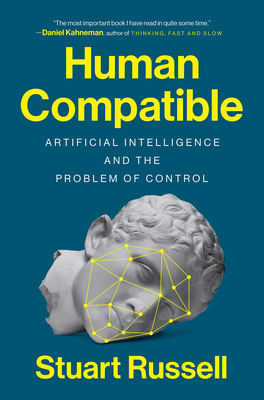
| Read Log, October-December 2021 | ||||
| By Tal Cohen | Wednesday, 12 January 2022 | |||
Throughout the text, Graves assumes that most myths (except, perhaps, the raw creation myths) are grounded in some ancient historic reality, and tries to map the myths to historic facts - or what seems, at times, like historic fiction. For example, the myth of Poseidon’s marriage is interpreted as stemming from a historic “interference of male priests with female control of the fishing industry”; the myth of Demeter and Poseidon “records a Hellenic invasion of Arcadia”; Cecrop’s daughters leaping from the Acropolis (in the story of Athene) “may have been a Hellenic capture of Athens”; “Zeus’s rape of Europe [...] records an early Hellenic occupation of Crete”; and “The myth of Cleobis and Biton apparently refers to the human sacrifices offered when a new temple was dedicated to the Moon-goddess”. There are innumerable additional examples (even “Heracles’s destruction of the Hydra seems to record a historical event”, apparently). It is hard to accept this base assumption (but also impossible to disprove it); my own personal assumption is that in many cases, myths are no more than layers upon layers of stories based on the whims of storytellers sitting by the fireside and letting their fancy run free (possibly with the help of mushrooms?), and any attempt to map the myths to history is not only futile but misleading. In other cases, Graves explains myths as failed attempts to decipher art (e.g., Tereus, “invented to account for a series of [...] wall-paintings”), which is equally hard to accept. I suspect that Graves’s attempt to map all myths to history is a result of Heinrich Schliemann’s successful excavations in Troy; if the Iliad has a historic base, why not the story of Oedipus, for example? Of the Iliad itself, Graves suggests that it secretly mocks the Olympian gods and the Greeks themselves; it is the Trojans that are the real heroes, and Homer is (of course!) “clearly a secret worshipper of the Great Goddess of Asia” who “has drawn on the Babylonian Gilgamesh epic for the Achilles story”. The Editor’s Introduction by Kenneth McLeish (in the Folio Society edition) presents relevant background on the decay of research and exploration of the myths, as they veered into Biblical-study-like mode over the centuries and until the mid-20th century; but his claim that the Greek myths survived intact, unlike other ancient myths, because of some inherent quality of them (“offered precedence for, and examples of, everything”) is unacceptable, if only because we don’t know that other myths that failed to survive didn’t include the exact same qualities. After all, they didn’t survive. It is far more likely that the survival of these myths as the result of cultural impact on the culture that then went ahead and destroyed many other nations and their myths, including in Africa, America, and Australia, for example.  The risk is real, because AI is aiming to solve the wrong problem (minimizing the cost function and maximizing the sum of awards); for example, CTR-increase AI in media feeds led to more predictable humans, or in other words, extremism; because the algorithm learns to modify the state of its environment (here, human minds) to maximize its own reward. Russell defines intelligence as the extent to which actions can be expected to achieve objectives. Thus, machines are intelligent to the extent that their actions can be expected to achieve their objectives. Machines are beneficial, however, to the extent that their actions can be expected to achieve our objectives. The point is that it doesn’t really matter if the AI we develop is conscious or not; that’s completely besides the point. The only thing that matters is how it behaves, and what it can do. Deployed correctly, superior AI (machines that can solve certain problems better than humans) could solve much of humanity’s problems, e.g., increase the GDP 10X in a fraction of the time such a growth previously required. The problem, however, lies with misuses of AI, such as mass surveillance, behavior control (through mass surveillance), damage to mental health (through behavior control), lethal autonomous weapons, elimination of work (which could remove purpose from human lives), and deep fakes. So, what should we do about it? Russell quotes Scott Alexander [Siskind] in a Slate Star Codex post: “The “skeptic” position seems to be that, although we should probably get a couple of bright people to start working on preliminary aspects of the problem, we shouldn’t panic or start trying to ban AI research. The “believers”, meanwhile, insist that although we shouldn’t panic or start trying to ban AI research, we should probably get a couple of bright people to start working on preliminary aspects of the problem.” And Russell, in position as one of these bright people, outlines his three principles for Beneficial Machines (unrelated, he claims, to Asimov’s Three Laws of Robotics):
The problem, though, is that the book doesn’t do a very good job of addressing these objections. I, for example, found myself left with several key concerns, such as the notion that learning from human behavior about human preferences is a horrible idea, as evident from so many attempted AI projects that turned racist within minutes. Or, more accurately: learning about human preferences, and accepting them as okay, is a real issue. Because louder voices will drown the gentler ones, for example. And what’s more, implementing all this sounds a bit far-out. In fact, I would actually prefer some variant of Asimov’s laws over this. Asimov’s laws have loopholes, of course (most of his robot novels are all about these loopholes), so we need more appropriately-defined ones. But they solve, for example, the “power off” problem (machines should always allow people to power them off) that Russel is so worried about. Overall, the book raises a very valid concern, and I agree with Russell that this is potentially the biggest threat facing humanity (yes, bigger than climate change, since a superhuman AI could probably solve the latter). However, it doesn’t do a very good job both at presenting the problem (for example, there’s so much useless discussion of the history of computing; a good editor would have removed most, or all, of Chapter 2) or at suggesting solutions.  Both translators end up with awkward formulations to render the text in their respective languages, sometimes needlessly so. For example, Green often uses unnatural word order in sentences; it is unclear to me if this was done for the sake of rhythm (I failed to find one) or to match the order in the original. Thus, in Book 16, we find: “for Patroklos by killing their leader, that outstanding fighter, spread terror throughout the ranks of all the Paiōnians”. Why not: “for by killing their leader, that outstanding fighter, Patroklos spread terror ...”? Importantly, Green took the bold step of (finally) using the Greek names, rather than the Latin ones, in the translation. As he notes, “one has to start getting rid of this wretched Latin legacy somewhere”; though sadly, he stopped short of using Akhilleús for Achilles. Overall, both translations are excellent and highly recommended, with insightful footnotes and comments throughout (even Shabtai’s introduction is readable, and not of the impenetrable kind commonly found in his translations of Greek plays). Shabtai often prefers the Greek names of entities (e.g., Zephyrus, where Green uses “west wind”; Eris where Green uses “Strife”; etc.) but both are perfectly acceptable solutions. Where the two texts disagreed, I often found myself referring to the original (and to lexicons; I do not, alas, speak Ancient Greek), and at times, one was more accurate, at times, the other; there is no clear pattern of either being more true to the source than the other, but this side-by-side reading truly allowed me to get a better feeling of the text as a whole.  (Spoilers ahead, if you care for that kind of warnings.) The overall answer to how it all works is nice: the gates work by harvesting energy (or some such) from a different universe, with different laws of physics; the “dark gods” are the inhabitants of that universe, who try to fight back; and so, aborting it all is not unreasonable. Of course, the idea of siphoning energy via a connection to a different universe was originally presented by Asimov in one of his best (and, alas, less known) books: The Gods Themselves. Elvi quoting Herodotus (“Be sure, stranger, to let the Laconians know we rest here, obedient to their command”) is so oddly appropriate. There were several instances where characters in the books refer to the classics (e.g., Naomi discussing Patroclus in Persepolis Rising) that were neither believable nor truly appropriate, plot-wise. But this one is a spot-on, and given that they were actually fighting the “Laconians” at the time, perhaps the story was (relatively) common knowledge.   Aloni’s progressive view is inspiring, including cases where Israeli law actually discriminates against men (e.g., in windower allowances), and even in cases where the discrimination is against Yeshiva students. In referring to the age of mandatory retirement, for example, she recommends full equality between the sexes, but to address the problem of weakened workers — which was the main rationale for avoiding the change thus far, as it disproportionally affects women — her solution is to set the retirement age based on the profession, the income level, the family size, and the number of dependents, completely removing the worker’s sex from the equation. (She also reviews the historic reason for this difference, which is based on British law; apparently the earlier retirement was part of British law due to (average) age differences between married couples, allowing the wife to retire, in most cases, alongside the husband, “so he wouldn’t have to serve tea for himself”.) The list of historic incidents of discrimination that’s intertwined in the text would have been amusing, has it not been so horrifying.
| ||||